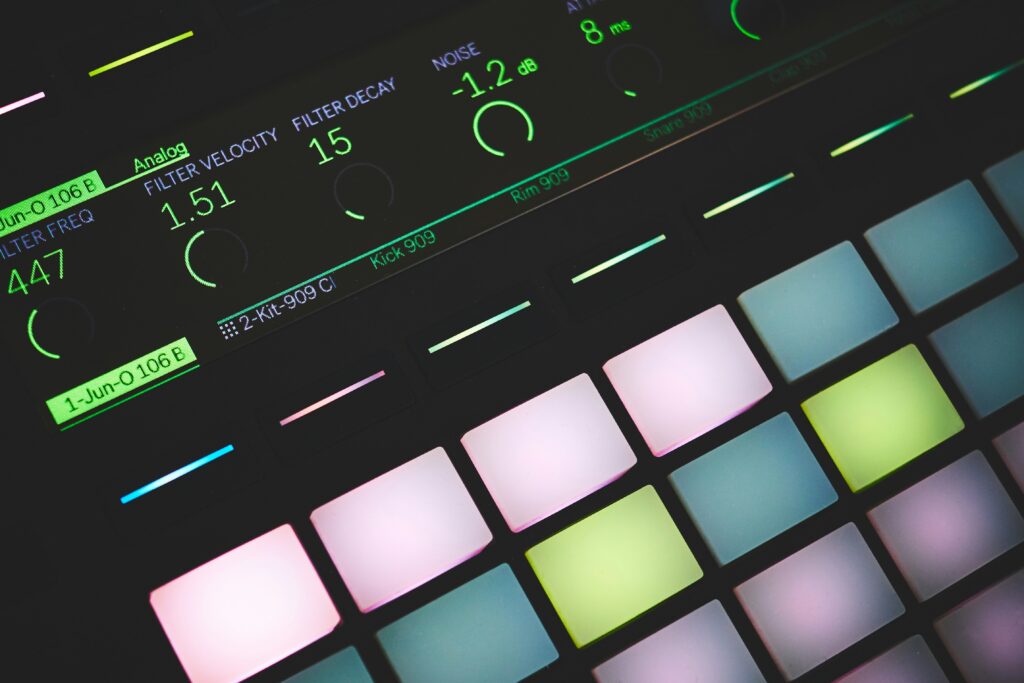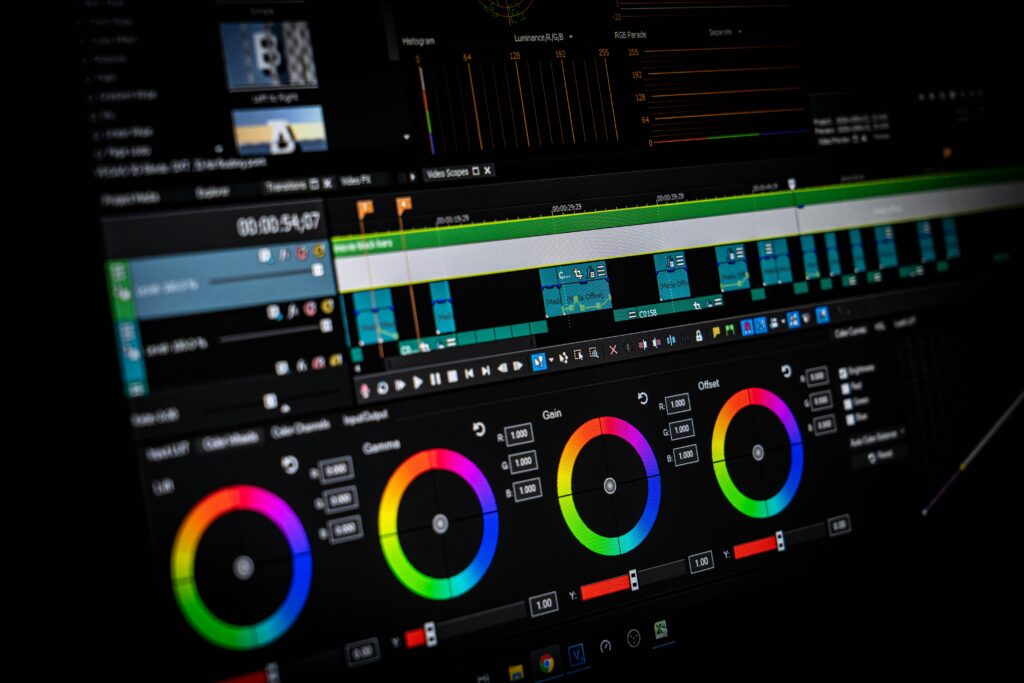Video production is a powerful tool for storytelling, marketing, and entertainment. As demand for high-quality content grows, the need for professional-grade tools increases. One key component is professional video editing software, offering features to transform raw footage into captivating videos that engage audiences.
Top production companies in Las Vegas use advanced editing tools to enhance Las Vegas video productions. Whether for business or entertainment, a video production company Las Vegas ensures polished content that elevates brands.
With film production Las Vegas, the right editing software is essential for delivering high-quality, engaging video content.
Understanding Video Production

Video production is a multifaceted process that involves several key stages, each requiring specific skills and tools to achieve the desired outcome. The primary phases of video production include:
Shooting: Capturing the raw footage using cameras and other recording equipment. This stage focuses on obtaining high-quality video and audio, ensuring the best possible material for editing.
Editing: The post-production phase where the captured footage is arranged, trimmed, and refined. This includes adding transitions, special effects, and soundtracks to create a cohesive and engaging final product.
Finalizing: Preparing the edited video for distribution. This involves exporting the video in the required formats, optimizing it for different platforms, and ensuring it meets the technical specifications for broadcast or online streaming.
Each of these stages plays a vital role in the overall production process, and the quality of the final video heavily depends on the tools and techniques used during editing.
Types of Professional Software for Video Production
There are several professional software options available for video production, each offering unique features and capabilities. Some of the most popular and widely used programs include:
Adobe Premiere Pro
Adobe Premiere Pro is a leading video editing software favored by professionals across the industry. Known for its robust features and seamless integration with other Adobe Creative Cloud applications, Premiere Pro offers:
Advanced Editing Tools: Supports multi-cam editing, keyframe controls, and advanced color grading.
Compatibility: Works with a wide range of file formats and integrates smoothly with other Adobe products like After Effects and Photoshop.
User-Friendly Interface: Intuitive layout and customizable workspace to suit individual workflows.
Final Cut Pro
Apple’s Final Cut Pro is a powerful video editing software tailored for Mac users. It is renowned for its performance and innovative features, including:
Magnetic Timeline: Allows for easy rearranging of clips without affecting the rest of the project.
Optimized Performance: Takes full advantage of macOS hardware capabilities for faster rendering and export times.
Comprehensive Toolset: Offers advanced color correction, 360-degree video editing, and support for HDR content.
Avid Media Composer
Avid Media Composer is a staple in the film and television industry, known for its reliability and extensive feature set. Key highlights include:
Precision Editing: Offers frame-accurate editing and powerful media management tools.
Collaborative Workflows: Supports real-time collaboration among multiple editors.
High-End Features: Includes tools for multicam editing, motion tracking, and audio mixing.
Features and Benefits of Professional Software

Using professional software for video production offers numerous benefits that can significantly enhance the quality and impact of your videos. Some of the key features and advantages include:
Advanced Editing Tools
Professional video editing software comes equipped with a wide range of advanced tools that allow for precise and creative edits. These tools include:
Multi-Cam Editing: Enables the synchronization and editing of footage from multiple cameras, perfect for live events and interviews.
Keyframing: Allows for detailed control over transitions, effects, and animations.
Advanced Trimming: Provides frame-accurate trimming and ripple edits for seamless video flow.
Special Effects
Adding special effects can transform ordinary footage into visually stunning content. Professional software offers:
Visual Effects (VFX): Create complex visual effects using built-in tools or by integrating with dedicated VFX software like Adobe After Effects.
Green Screen (Chroma Key): Remove and replace backgrounds to create immersive environments.
Motion Graphics: Incorporate dynamic text and graphic elements to enhance the visual appeal.
Color Correction and Grading
Color correction and grading are essential for achieving a consistent and professional look. Professional software provides:
Color Correction: Adjusts exposure, contrast, and color balance to ensure accurate and appealing visuals.
Color Grading: Applies stylized color effects to create a specific mood or aesthetic.
The Majority of Video Production Projects Today
Today’s video production projects predominantly utilize non-linear editing (NLE) systems. NLE allows editors to access any frame in a digital video clip regardless of the sequence in the clip. This method provides:
Greater Flexibility
NLE systems enable editors to make changes at any point in the video without altering the rest of the footage. This flexibility allows for more creative freedom and experimentation.
Enhanced Creativity
With NLE, editors can easily incorporate various effects, transitions, and graphics. This capability fosters a more creative approach to video editing, enabling the production of unique and engaging content.
Efficiency
NLE systems streamline the editing process by allowing multiple edits and adjustments to be made quickly and easily. This efficiency is crucial in meeting tight deadlines and managing large projects.
Choosing the Right Software for Your Needs
Selecting the right professional software for your video production needs depends on several factors:
Budget
Consider the cost of the software and whether it fits within your budget. Some software options offer subscription-based pricing, while others require a one-time purchase.
Technical Requirements
Ensure that the software is compatible with your computer’s operating system and meets the hardware requirements. High-performance software may require more advanced hardware to run smoothly.
Desired Features
Evaluate the features and tools offered by each software option. Choose the software that provides the capabilities you need for your specific projects, such as advanced color grading, multi-cam editing, or VFX integration.
Tips for Using Professional Software Effectively
Maximizing the potential of professional video editing software involves following best practices and optimizing your workflow:
Organization
Keep your project files organized by using a consistent naming convention and maintaining a clear folder structure. This organization helps streamline the editing process and reduces the risk of losing important files.
Workflow Organization
Develop a systematic workflow that includes regular backups, efficient rendering settings, and a logical sequence of editing tasks. An optimized workflow enhances productivity and ensures a smoother editing experience.
Collaboration
Leverage collaborative features within the software to work effectively with team members. Use shared project files, real-time editing, and version control to maintain consistency and streamline communication.
Advanced Techniques and Tools
Professional video editing software offers a range of advanced techniques and tools that can elevate your video projects:
Motion Tracking
Motion tracking allows for the precise tracking of objects within a video frame, enabling the addition of effects, text, or graphics that follow the movement of the tracked object.
3D Animation
Incorporate 3D elements into your videos using built-in tools or by integrating with specialized 3D animation software. This technique adds depth and realism to your content.
Multi-Camera Editing
Edit footage from multiple cameras simultaneously, allowing for seamless transitions and comprehensive coverage of events. This technique is particularly useful for live events, interviews, and concerts.
Future Trends in Video Production Software

The video production landscape is continually evolving, with emerging trends and advancements shaping the future of the industry:
Virtual Reality Integration
VR integration allows for the creation of immersive video experiences, offering viewers a 360-degree perspective. This trend is gaining popularity in industries such as real estate, tourism, and entertainment.
Artificial Intelligence
AI-powered tools are revolutionizing video production by automating tasks such as scene detection, facial recognition, and audio enhancement. These advancements increase efficiency and enhance the quality of the final product.
Cloud-Based Editing Platforms
Cloud-based editing platforms enable remote collaboration, allowing team members to work on projects from anywhere in the world. This trend facilitates greater flexibility and scalability in video production.
Conclusion
Professional software is essential for video production Las Vegas, offering advanced features to enhance video quality and impact. By evaluating software types and benefits, you can elevate your projects. Embrace professional video editing tools to create high-quality content that captivates your audience and boosts your brand.
Production companies in Las Vegas use these tools to deliver exceptional Las Vegas video production, ensuring content stands out.
To book our services, kindly send us an email at Art@HUSTLMedia.com or directly call us at (702) 980 -9620. You may also learn more about us and our campaigns by visiting our website – HUSTL Media.




